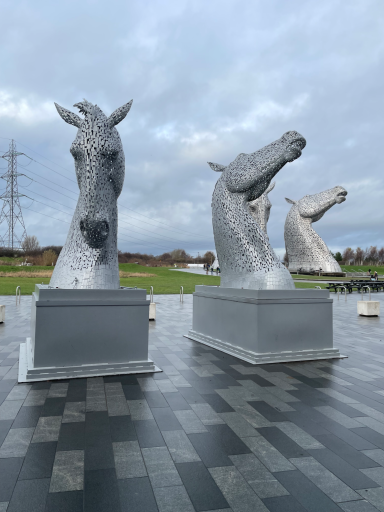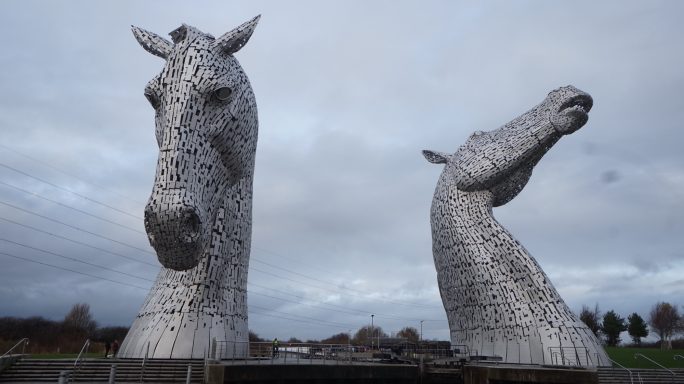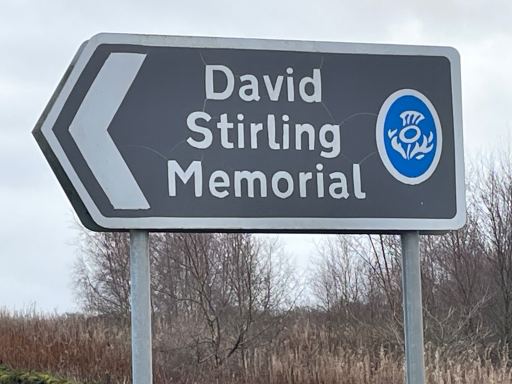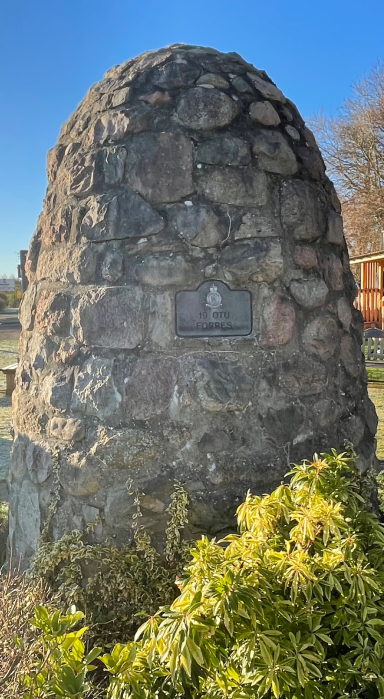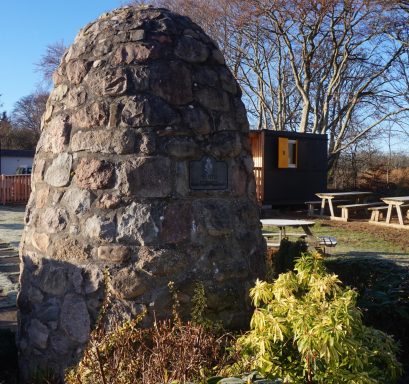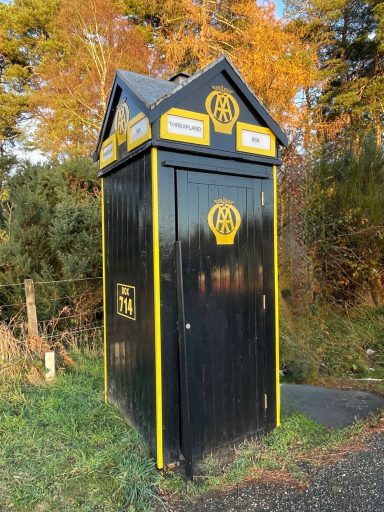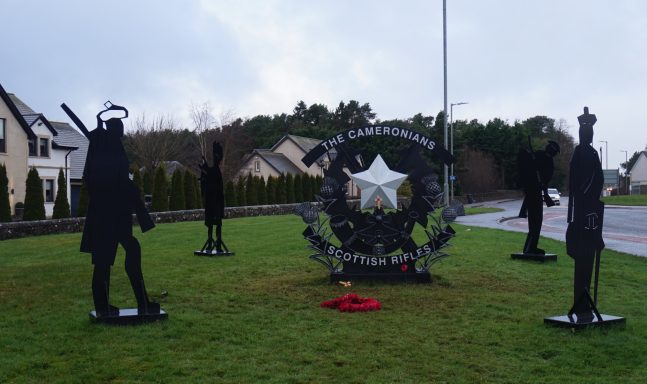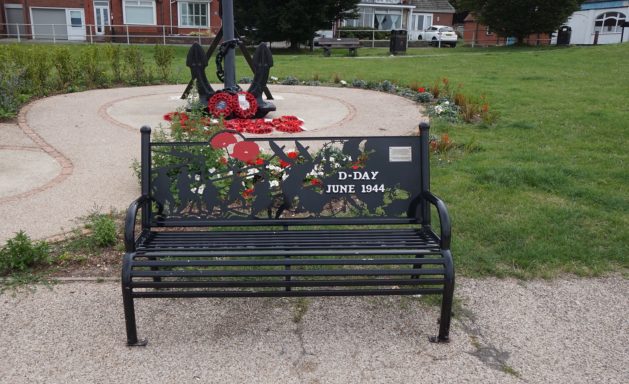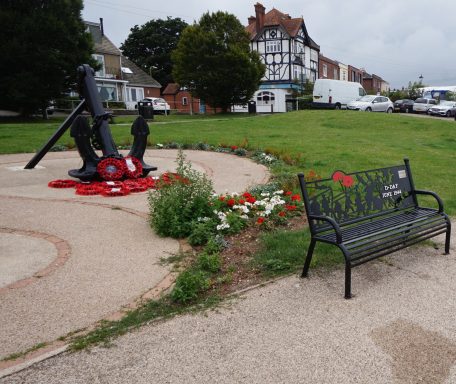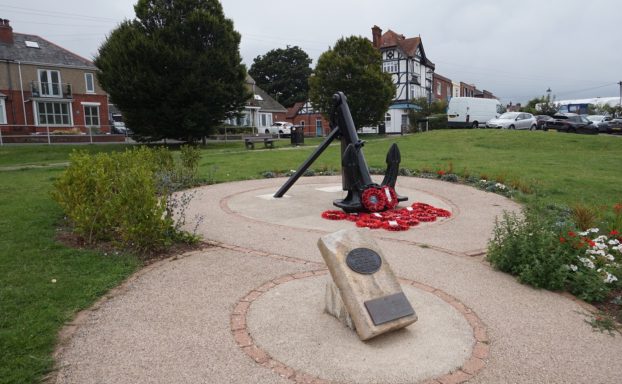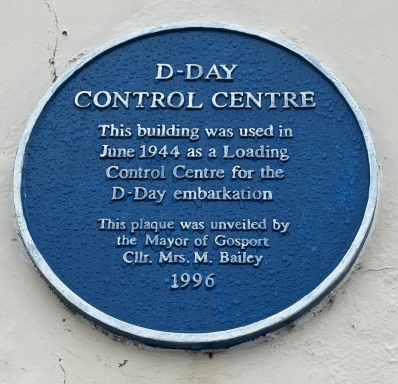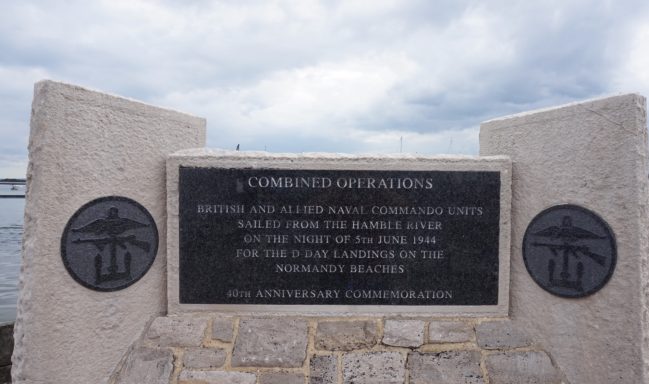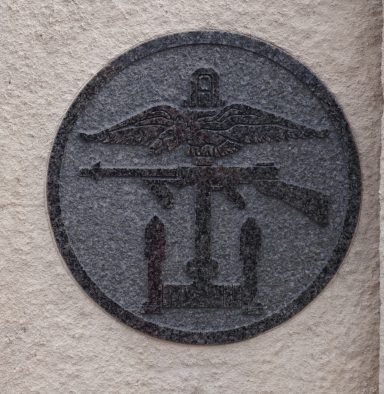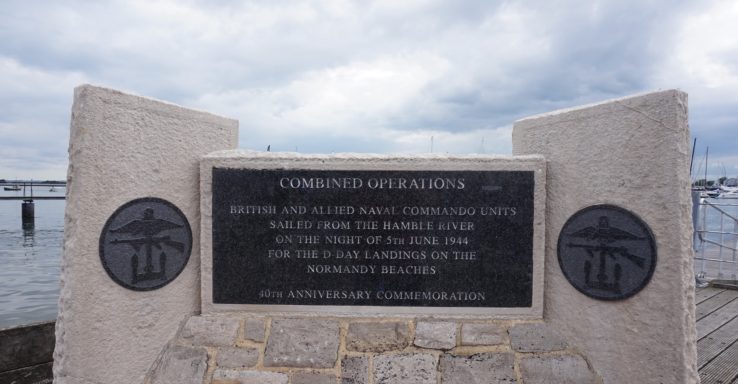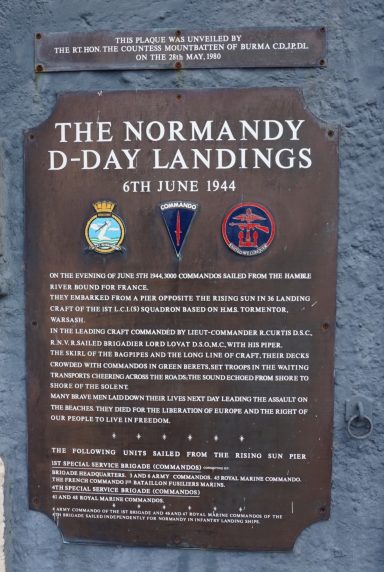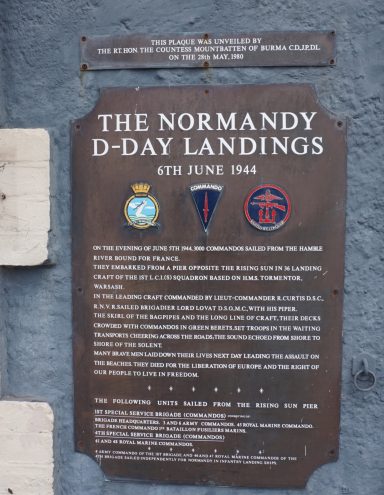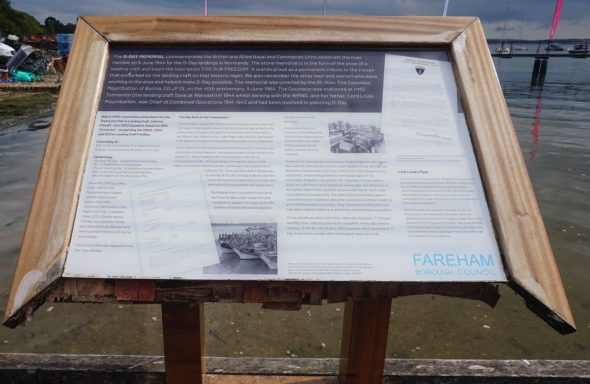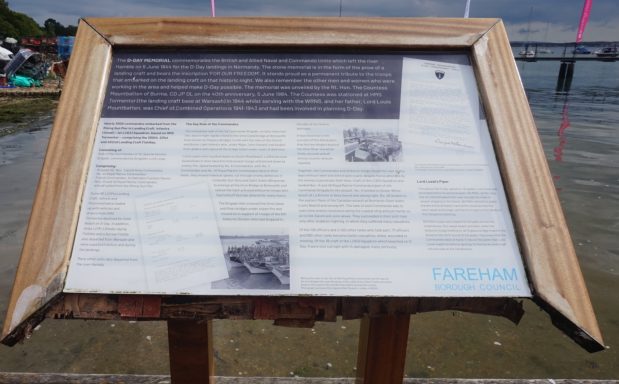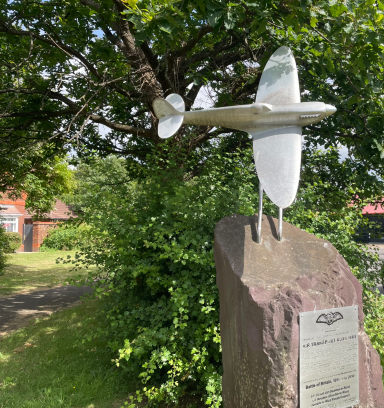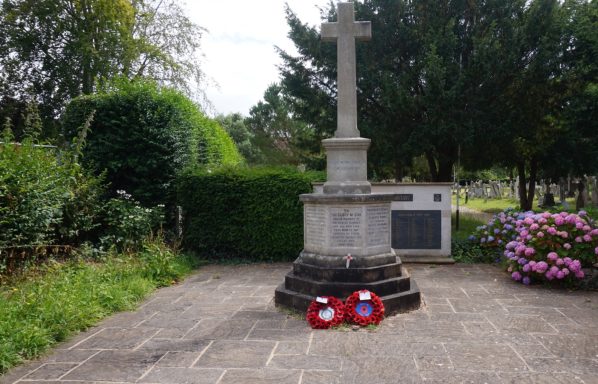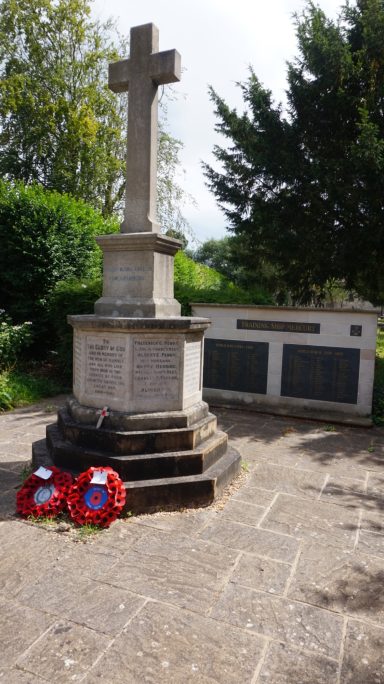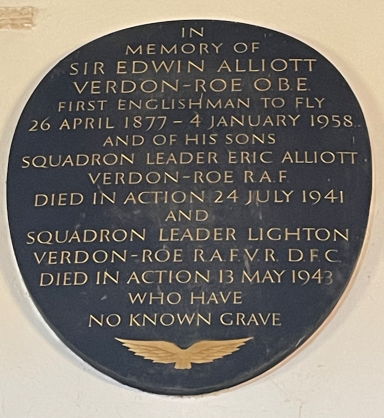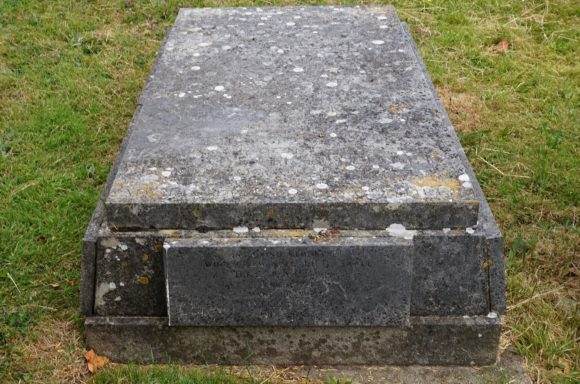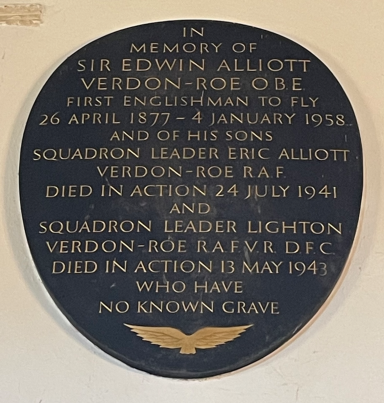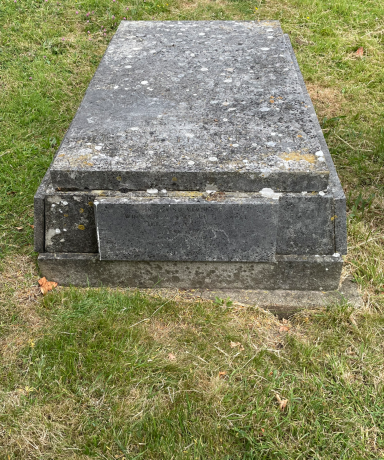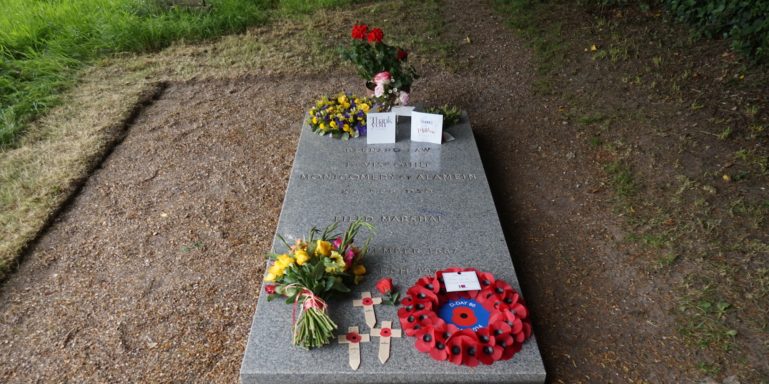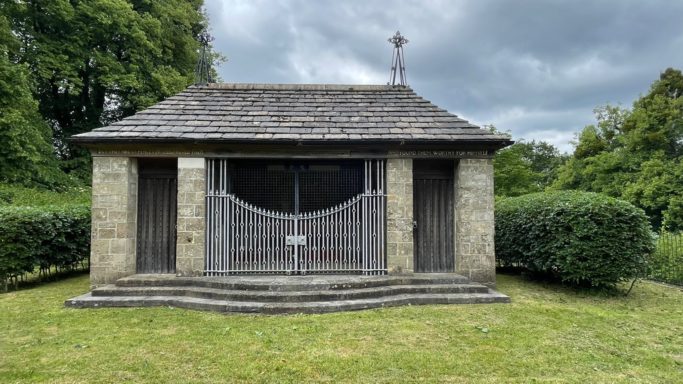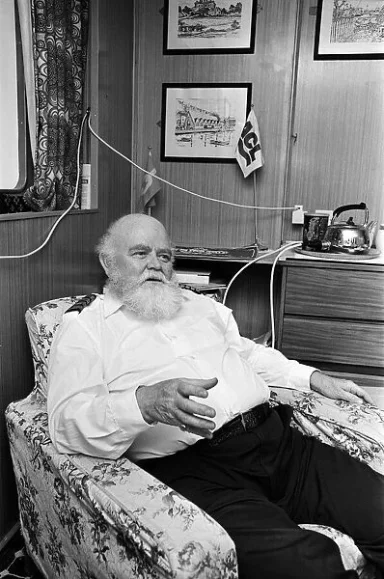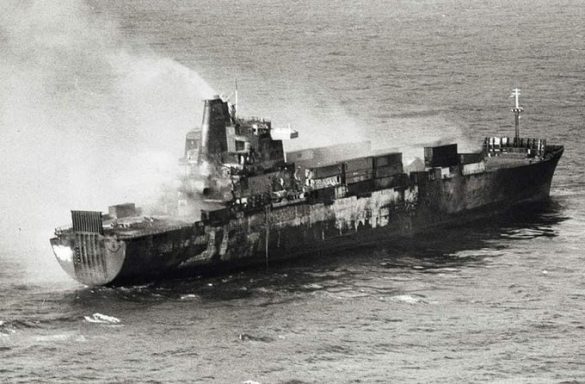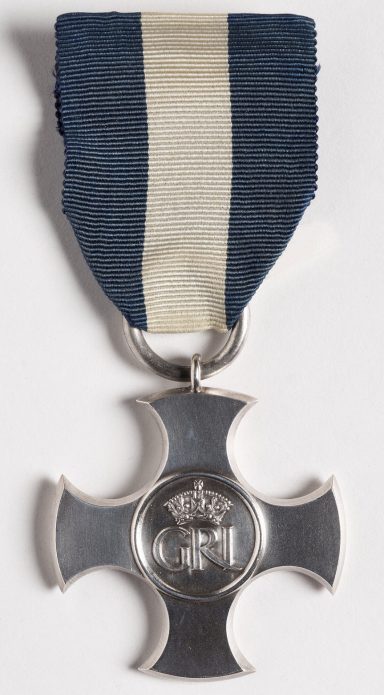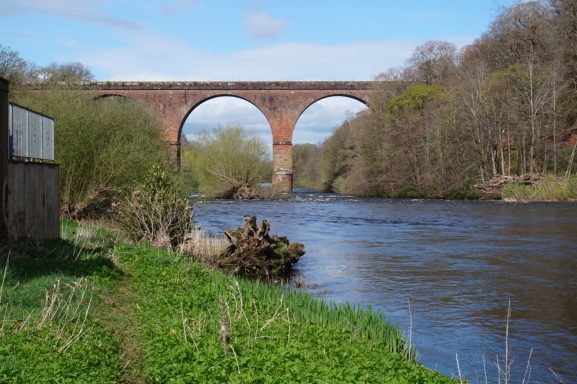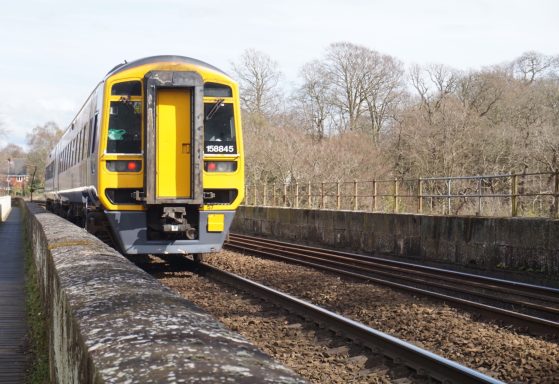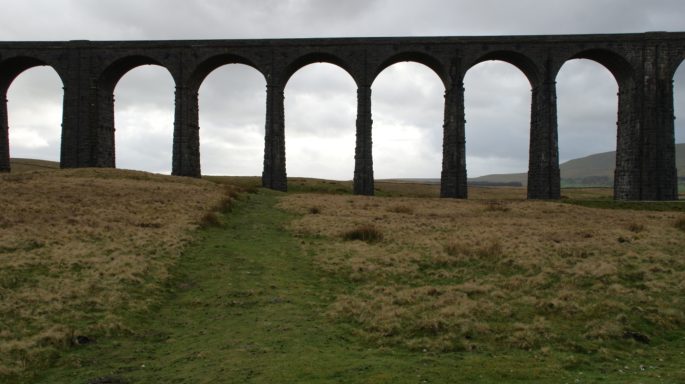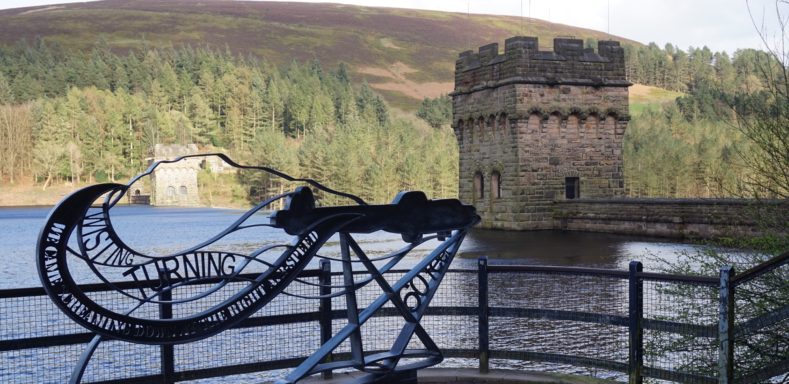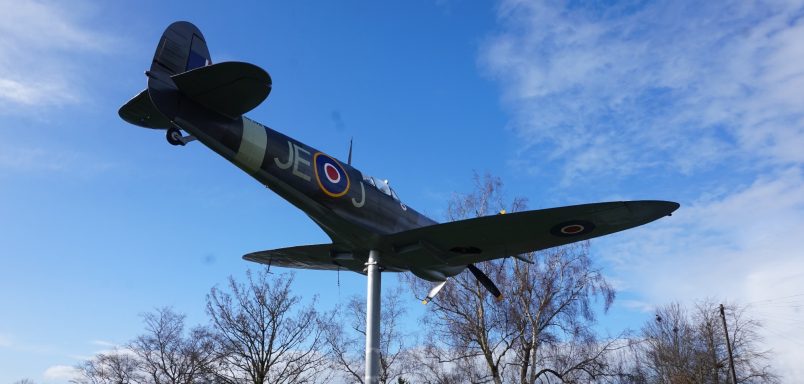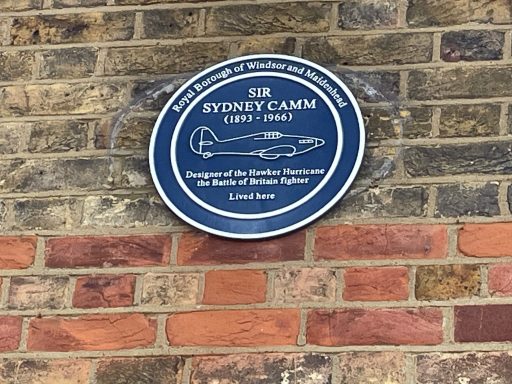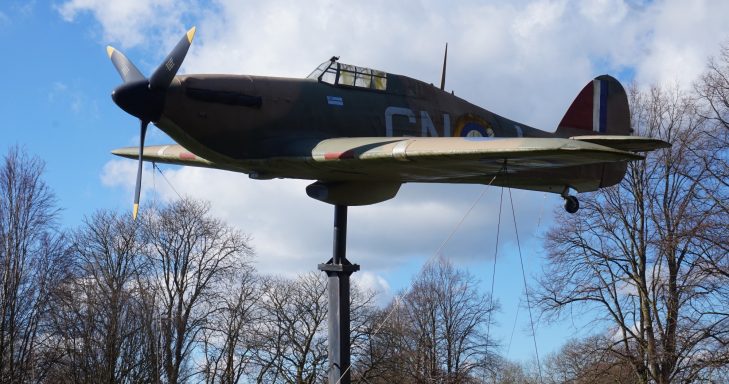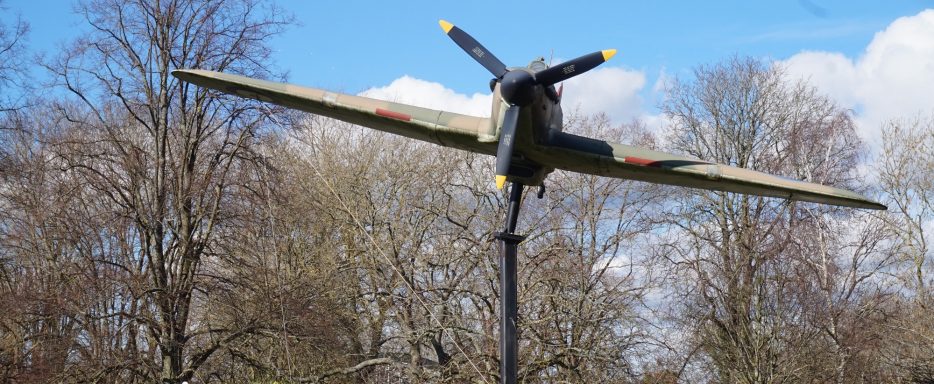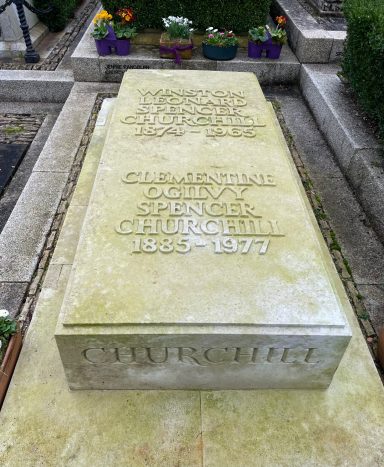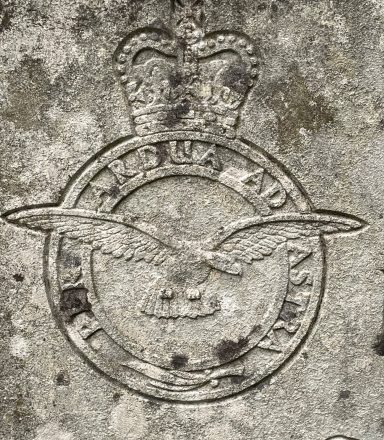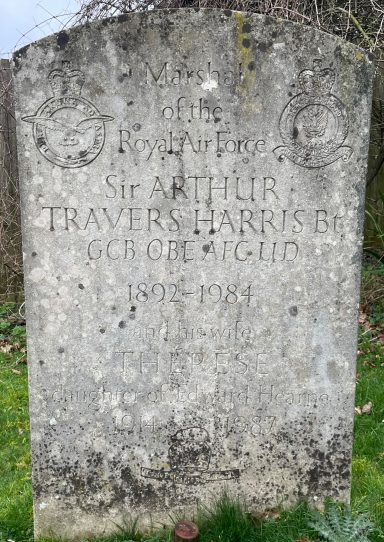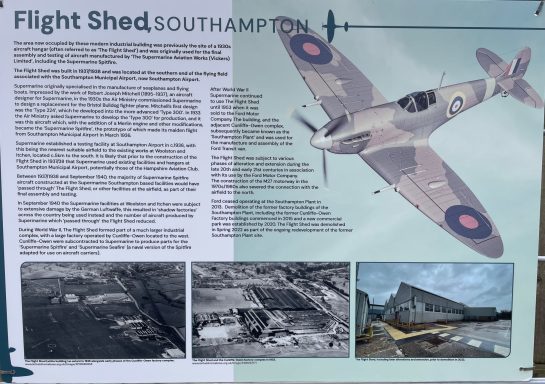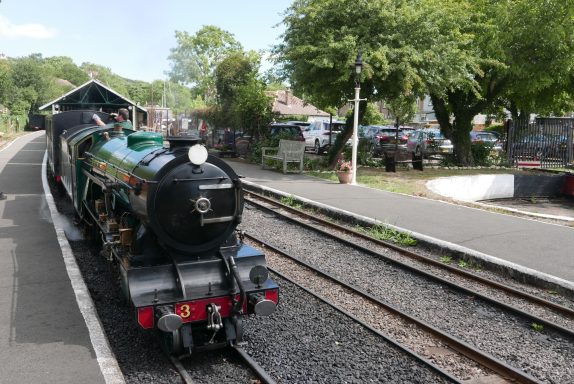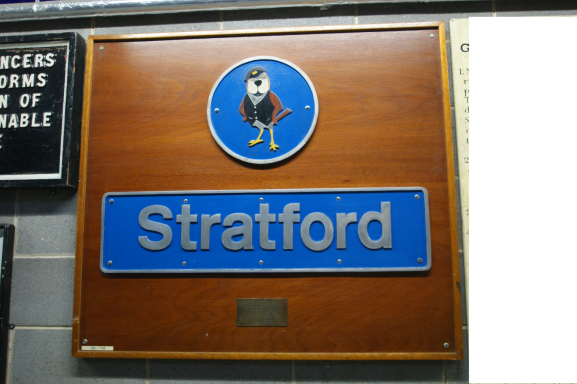The Kelpies
Falkirk
Scotland
November 2024
The Kelpies
Falkirk
Scotland
November 2024
The Kelpies
The Kelpies are a pair of Steel Sculptures designed in the shape Horse’s Heads. They are located between the Scottish Towns of Falkirk and Grangemouth and visible from the M9 Motorway.
Each Steel Sculptures is 30 Metres High.
The Kelpie, is a mythical Shape-Shifting Spirit inhabiting Lochs in Scottish Folklore.
It was usually described as a Grey or White Horse Like Creature, able to adopt Human form. Some accounts state that the kelpie retains its hooves when appearing as a Human.
The Kelpies sculptures were designed by Sculptor Andy Scott. The Sculptures were completed in October 2013.
The unveiling ceremony of the Kelpies took place in April 2014
I would like to take is Opportunity to thank the Staff at the Kelpies for all their Help and Assistance.
The Disabled Facilities are First Class.
David Sterling Memorial
Doune
Scotland
November 2024
David Stirling Memorial
Doune
Scotland
November 2024
The Special Air Service (SAS)
Lieutenant-Colonel Sir Archibald David Stirling DSO, OBE Founder of the Special Air Service (SAS).
The Long Range Desert Group (LRDG) were sometimes arraigned to guide Members of the SAS across the Desert during World War Two.
The David Stirling Memorial Stands overlooking the Hill of Row.
The Two Bronze Plaques at the bottom of David Stirling Memorial were Stolen in May 2014.
The David Stirling Memorial was erected and Maintained by the Special Air Service Association
The SAS the Regiment that never Existed
Piper Alpha Memorial
Hazel Park
Aberdeen
Scotland
November 2024
Piper Alpha Memorial
Hazel Park
Aberdeen
Scotland
November 2024
Piper Alpher
Piper Alpher was a Gas Production Plarform located in the North Sea approximately 120 Miles North-East of Aberdeen, Scotland.
On the Night between the 6/7 July 1988 there was a Large Gas Leak. The Gas was ignited causing a Large Explosion. This started a Chain Reaction Leading to Massive Fire aboard Piper Alpha.
Sixty-One Production Workers Escaped and Survived
One-Hundred Sixty Five Production Workers did not Survived.
Thirty Bodies have never been recovered.
The Piper Alpha Memorial is Located at Hazlehead Park within the Rose Garden
Fraserburgh
Lifeboat Station
Fraserburgh
Scotland
November 2024
Fraserburgh
Lifeboat Station
Fraserburgh
Scotland
November 2024
Royal National
Lifeboat Institution (RNLI)
The Memorial that Stands at the front of Fraserburgh Lifeboat Station it is dedicated to the Volunteers who lost their lives whilst serving crew member of the Fraserburgh Lifeboat.
There are Thirteen Names on the Bronze Plaque Dating from 28.04.1919 to 21.01.1970.
The Fraserburgh Lifeboat is a Trent Class Lifeboat.
The Name of the Fraserburgh Lifeboat is Wille and May Gall.
All Crew Members at any Lifeboat Station are Volunteers
RAF Forres Memorial
Findhorn Bridge
Scotland
November 2024
RAF Forres Memorial
Findhorn Bridge
Scotland
November 2024
RAF Forres
RAF Forres Memorial is situated on the A96 at Longhorn Bridge
RAF Station was a opened on the 25th of January 1941.
RAF Forres was under the control of No.91 Group, Bomber Command during World War Two.
RAF Forres was used as a Operational Training Unit (OTU) during Would War Two.
The obsolete old Whitley Bomber were replaced by Vickers Wellingtons in mid 1944.
I Would like to thank the People of Kenny's Coffee & Grill for thair concent too allow the pictures of RAF Forres Menorial on to this Website.
If you are Passing RAF Forres Menorial on the A96 Stop and have a Coffee.
The Disable Accsee to the Coffee shop and the Menorial are very good.
AA Roadside Telephone Boxes
Scotland
November 2024
AA Roadside Telephone Boxes
Scotland
November 2024
AA Roadside Telephone Boxes
Pictures 1 to 3 the AA Roadside Telephone Box at Brachla on the A82. By the side of Loch Ness
The Box Number is 631
Pictures 4 to 6 is the AA Roadside Telephone Box at Threapland on the A96.
The Box Number is 714.
Loch Ness
Brachla
Scotland
November 2024
Loch Ness
Brachla
Scotland
November 2024
Loch Ness
Loch Ness is a large freshwater Loch in the Scottish Highlands it extending for approximately 23 miles along the Length of the Great Glen southwest of Inverness
It is famous for the myth of the Loch Ness Monster.
Loch Ness is the Second Largest Loch in Scotland.
Loch Ness at its deepest point is 230 metres making it the Second Deepest Loch in Scotland after Morar
The Forth
Railway Bridge
North Queensferry
Scotland
November 2024
The Forth
Railway Bridge
North Queensferry Scotland
November 2024
The Forth Railway Bridge
The Forth Railway Bridge spans the Firth of Forth for North Queensferry to South Queensferry,
The Forth Railway Bridge has a Length of 1.533 Miles
The Forth Railway Bridge carries the Main Line from Edinburgh North to Inverness and Aberdeen
The Cameronian Scottish Rifles Memorial
Lanark
Scotland
November 2024
The Cameronian Scottish Rifles
Memorial
Lanark
Scotland
November 2024
The Cameronian Scottish Rifles
The Cameronian Memorial is opposite the Roundabout close to the former site of the Winston Barracks on the outskirts of Lanark in Hyndford Road.
D-Day
Embarkation Points
Hardway
Gosport
July 2024
D-Day
Embarkation Points
Hardway
Gosport
July 2024
D-Day 77th Anniversary
The 77th D-Day Anniversary Bench Seat is Oppositethe 40th Anniversay Menorial to the D-Day Landings.
The 77th D-Day Anniversary Bench Seat is Facing towards HMNB and Portsmouth Harbour.
D Day
Embarkation Points
Hardway
Gosport
July 2024
D-Day
Embarkation Points
Hardway
Gosport
July 2024
D-Day 40th Anniversary Memorial
The Memorial at the Embarkation Point at Hardway Gosport.
Hardway was the Embarkation Point used by the 1st East Riding Yeomanry,
The 1st East Riding Yeomanry Sherman Tanks were loaded at Hardway Embarkation Point ready for the Normandy Landings on D-Day 6th June 1944,
The Royal Engineers Constructed the slipways for the loading of Sherman and Churchill Tanks
There is an Oval plaque fixed to a Block of Stone.
The Stone is Part of Rubble bought back from Caen following an Air Raid.
D-Day
Embarkation Points
Stokes Bay
Hampshire
July 2024
D-Day
Embarkation Points
Stokes Bay
Gosport
July 2024
D-Day 50th Anniversary
D-Day 50th Anniversary Memorial stands on the Promenade at Stokes Bay.
The Embarkation Point for British and Canadian Land Forces was Controlled from the Building which is now Stokes Bay Sailing Club.
There is a Blue Plaque on the back of the Sailing Club Building.
The British and Canadian Forces Sailed from Stokes Bay to the Normandy Beaches Part of Operation Overlord.
D-Day
Mulberry Harbour
Stokes Bay
Gosport
July 2024
D-Day
Mulberry Harbour
Stokes Bay
Gosport
July 2024
Mulberry Harbour
Fourteen Sections of the Mulberry Harbour were Constructed at Stokes Bay During World War Two
Each Section of the Mulberry Harbour Weighed 140,000 Metric Tonnes and was Constructed out of Concrete.
The Sections of the Mulberry Harbour were Towed across the English Channel to form a Temporary Harbour.
Thair was Two Temporary Mulberry Harbours installed, One at Omaha Beach and the Second at Gold Beach on the Normandy Coast
The Mulberry Harbours were used for the unloading of Equipment after the D Day Invasion.
Sixteen Hundred People Worked on the Construction of the Mullbury Harbour Sections at Stokes Bay
D Day
Embarkation Points
Gosport Ferry
Gosport
July 2024
D-Day
Embarkation Points
Gosport
July 2024
6th June 1944
The D-Day Memorial is Situated on the Promenade adjacent to Falklands Gardens near the Gosport Ferry Entrance.
The D-Day Memorial Commemorates the Embarkation Points for Allied Forces from Aaround Gosport During World War Two for Operation Overlord Liberation of Europe.
D Day
Leap Country Park
Leap Beach
July 2024
D-Day Memorial
Leap Country Park
Leap Beach
July 2024
D-Day 40th Anniversary Memorial
The 40th D-Day Momument overlooks Leap Beach and The Solent.
This was one of the South Coasts Embarkation Point for Operation Overlord the D Day Invasion to Liberate Europe from the Nazis During World War Two.
D-Day
Combined Operations Embarkation Point Memorial & Plaque
Warsash
July 2024
D-Day
Combined Operations Embarkation Point Memorial & Plaque
Warsash
July 2024
D-Day 40th Anniversary Embarkation Point Memorial
The Stone Embarkation Point Memorial is Opposite Shore Road Car Park Exit
The Embarkation Point Plaque is in Shore Road on the Wall of The Rising Sun
Warsash Embarkation Point was one of many Embarkation Points around Portsmouth, Gosport and Southampton, which facilitated the Loading of Men and Equipment who took part in Operation Overlord the D-Day Invasion on the 6th June 1944.
The Leading Landing Crafts were Commanded by Lieutenant-Commander Rupert Curtis DSC.
Thirty-Six Landing Craft sailed on the evening of 5th June 1944 Headind to the Normandy Beaches
Warsash was the Embarkation Point for the Commandos of,
- 1st Special Service Brigade
- 4th Special Service Brigade
- 41 Royal Marine Commando
- 48 Royal Marine Commando
- The French Commando 1st Battalion Fusiliers Marines
The Commanding Officer of the 1st Special Service Brigade was Brigadier Simon Christopher Joseph Fraser DSO, MC
Brigadier Fraser (AKA 15th Lord Lovat)
The Landing Craft left the River Hamble to the Skirl of the Bagpipes being played by Piper Bill Millan (AKA Piper Bill)
Piper Bill Millan was Lord Lovat Personal Piper
The Royal Marine Commando were Standing on the Decks of the Landing Craft wearing their Green Berets
Air Transport Auxiliary
Hamble-le-Rice
July 2024
Air Transport Auxiliary
Hamble-le-Rice
July 2024
ATA
The Air Transport Auxiliary (ATA)
The ATA was a British Civilian Organisation set up at the start of World War Two.
The Headquarters of the ATA was at White Waltham Airfield in Berkshire.
The main Role of the ATA was to deliver New, Repaired and Damaged Military Aircraft between Factories, Assembly plants, Transatlantic delivery Points, Scrapyards, and active RAF squadrons During World War Two.
There is a Monument at Hamble-le Rice in the Borough of Eastleigh for No.15 Ferry Pool ATA.
The Monument is in recognition to the Pilots that delivered Aircraft during the Battle of Britain.
Both Male and Female Pilots received equal pay from 1943 this was a first for the British government.
Ten Percent of the ATA Pilots were Women.
The Unofficial Motto of the ATA was, Anything to Anywhere
Training Ship Mercury
St Andrew the Apostle Church
Hamble-le-Rice
July 2024
Training Ship Mercury
St Andrew the Apostle Church
Hamble-le-Rice
July 2024
Training Ship Mercury
The Training Ship Mercury Was founded in 1885 as a Naval Training Establishment Ship and Shore Base from 1892 until its closure in July 1968.
Training Ship Mercury trained Boys for both the Royal Navy and Merchant Navy
The Monument Lists the Names of the Men who made the Ultimate Sacrifice During World War One 1914 – 1918 and World War Two 1939 -1945.
The Memorial to the Men from the Training Ship Mercury is at St Andrew the Apostle Church. Hamble-le-Rice is in the Borough of Eastleigh
A.V. Roe
St Andrew the Apostle Church
Hamble-le-Rice
July 2024
A.V. Roe
St Andrew the Apostle Church
Hamble-le-Rice
July 2024
Sir Edwin Alliott Verdon-Roe OBE
The Tombstone of Sir Edwin Alliott Verdon-Roe OBE
A.V. Row was a Pioneer English Pilot and Aircraft Manufacturer. A V Row was the founder Avro company.
A V Roe was officially the first Englishman to fly an all-British Aircraft.
Between 1928 and 1940 A.V. Roe lived at Hamble-Le-Rice.
A.V. Roe died on 4 January 1958 at St Mary's Hospital in Portsmouth.
A V Roe is buried at St Andrew the Apostle Church Hamble-Le-Rice in the Borough of Eastleigh.
There is a Commemorative Plaque inside St Andrew the Apostle Church to A.V. Roe and his Sons Both of A.V. Roe’s Sons were Killed in Action during World War Two and have no Graves
The Tombstone for A.V. Roe is Close to the Entrance to St Andrew the Apostle Church
Admiral of the
Fleet
Lord Fieldhouse
Falklands Gardens
Gosport
July 2024
Admiral of the
Fleet
Lord Fieldhouse
Falklands Gardens
Gosport
July 2024
Lord Fieldhouse of Gosport
Admiral of the Fleet Lord John David Elliott Fieldhouse
Lord Fieldhouse of Gosport GCB, GBE
Admiral Fieldhouse joined the Royal Navy as a Cadet in 1944
Following the Invasion of the Falkland Islands by Argentina in April 1982 Admiral Fieldhouse was appointed Commander of the Task Force for Operation Corporate to recover the Falkland Islands from the Argentine.
The Bronze Bust of Lord Fieldhouse overlooks HMNB Portsmouth
Falklands War
Memorial
Falklands Gardens
Gosport
July 2024
Falklands War
Memorial
Falklands Gardens
Gosport
July 2024
Memorial for the 1982 Falklands War
The 1982 Falklands War Memorial is adjacent to Falkiands Gardens Mosaic.
The Falklands War Memorial stands on the Gosport side HMNB Portsmouth from where the Task Force sailed from in 1982 to recover the Falkinad Islands.
Falklands War Mosaic
Falklands Gardens
Gosport
July 2024
Falklands War Mosaic
Falklands Gardens
Gosport
July 2024
FalkIands Mosaic
The Falklands Mosaic is Laid on the Pronenade near Falklands Gardens Gosport.
The Mosaic is Adjacent to the Falkiands War Memorial
Field Marshal
Bernard Law Montgomery
Holy Cross Church Binsted
June 2024
Field Marshal
Bernard Law Montgomery
Holy Cross Church Binsted
June 2024
D Day Eightieth Anniversary 6th June 2024.
Field Marshal Bernard Law Montgomery, KG, GCB, DSO. 1st Viscount Montgomery of Alamein.
Field Marshal Bernard Law Montgomery is Buried at The Holy Cross Church Binsted
Field Marshal Montgomery Nicknamed was Monty
General Montgomery was the Commanding Officer of the British Eighth Army during Western Desert Campaign (Desert War)
The Nickname of the British Eighth Army was the Desert Rats.
El Alamein
The Second Battle of El Alamein Started on 23 October 1942 and Finished on the 11 November 1942) the battle took place near the Egyptian Railway Halt of El Alamein.
The Second Battle of El Alamein was fought between the British Eighth Army and the German Africa Corps
General Bernard Montgomery (Monty) was Commanding Officer of the British Eighth Army.
General Erwin Rommel (The Desert Fox) was Commanding Officer of the German Africa Corps.
Operation Overlord (D Day)
General Montgomery returned to England in January 1944 and was Appointed Commanding Officer of 21st Army Group this was all the Ground Forces for Operation Overlord the Allied Invasion of Normandy.
David Montgomery
Field Marshal Montgomery Son David Bernard Montgomery has a Halfsize Tombstone at the Bottom of his Father's Grave.
Stoneham War Shrine
Eastleigh
May 2024
Stoneham
War Shrine
Eastleigh
May 2024
Stoneham War Shrine
Stoneham War Shrine is Located in the Borough Eastleigh
Stoneham War Shrine was Built 1917 by Local Landowner John Willis Fleming.
Stoneham War Shrine Commemorates the Death of Richard Fleming and the other Thirty-Six Men who came from the North Stoneham Parish that were Killed during the Great War between 1914-1918.
Stoneham War Shrine Stands within One Thousand Acres of North Stoneham Park.
The Dambusters
Memorial
Woodhall Spa
April 2024
The Dambusters
Memorial
Woodhall Spa
April 2024
The Dambusters
The Dambusters Memorial was Erected in 1987.
The Dambusters Memorial Stands on the site of the former Royal Hydro Hotel and Winter Gardens.
The Hotel and the Winter Gardens Wrer both Destroyed in a Air Raid in 1943.
617 Squadron Undertook the Air Aaid on the German Dams in the Ruhr Valley.
The Operation was Lead by Wing Commander Guy Gibson VC.
Nineteen Lancaster Bomber Took Part in the Air Raid.
Eight Lancaster Boomer were Shotdown on the Air Raid and 53 Aircrew were killed in Action.
Three Aircrew were Taken Prisoners of War.
On the Top of the Memorial it Reads, They Died For Your Freedom
617 Squadron
Modern Memorial
Woodhall Spa
April 2024
617 Squadron
Modern Memorial
Woodhall Spa
April 2024
617 Squadron
The Modern 617 Squadron Memorial This Memorial is Decicated to the Fallen of 617 Squadron from 1945.
The New 617 Squadron Memorial was Unveiled in May 2013.
The Modern 617 Squadron Memorial is Said to Symbolise the Valcans and Tornados Flown by 617 Squadron.
Royal Square
Woodhall Spa
April 2024
Royal Square
Woodhall Spa
April 2024
Royal Square
Royal Square is the Site of the Former Royal Hydro Hotel and Winter Gardens.
The Royal Hydro Hotel and Winter Gardens were Destroyed in 1943 by the German Luftwaffe.
Captain Ian North
Doncaster Minster Doncaster
April 2024
Captain Ian North
Doncaster Minster Doncaster
April 2024
Captain Ian Harry North DSC
Captain Ian Harry North DSC was the Commanding Officer of the SS Atlantic Conveyor a Merchant Navy ship.
The Atlantic Conveyor was Hit by a Argentine Air Launched Exocet Missile on the 28th of May 1982.During the Falklands War.
Thirteen Crew Members were Killed when an Exocet Missile Struck the Atlantic Conveyor this Included the Ships Master. Captain Ian North.
The Distinguished Service Cross (DSC) is the Third Level Military Decorations Awarded to Officers of British Merchant Navy and From 1993 Ratings
The DSC is Awarded in Recognition of an Act or Acts of Exemplary Gallantry During Active Operations Against the Enemy at Sea from 1979 the DSC can be Awarded Posthumously.
Captain Ian North was awarded a DSC Posthumously.
Captain Ian North's Body was never recovered from the Atlantic Ocean.
The Crew of the Atlantic Conveyor affectionately called Captain North Captain Birdseye.
Wetheral Viaduct
Wetheral
April 2024
Wetheral Viaduct
Wetheral
April 2024
The Wetheral Viaduct
The Wetheral Viaduct Crosses over the River Eden.
The Wetheral Viaduct Carries the Main Tyne Valley Railway Line.
The Wetheral Viaduct is a Grade One Listed Building.
The Length of the Wetheral Viaduct is 200 Metres
The Height of the Wetheral Viaduct is 30 Metres.
There are 5 Redstone Archies and Two of the Wetheral Viaduct Piers Stand on the River Eden Bed.
The Construction Work was Started 1830 and was Completed in 1834.
A Footbridge was added to The Wetheral Viaduct this was to Provide Access the River Eden.
Over One Hundred were Killed in the Construction of the Wetheral Viaduct the Newcastle and Carlisle Railway Company had to Pay for Extensions to the Local Cemeteries due to the High Death Rate on the Construction of the Weatheral Viaduct.
The Footbridge was also used to stop Trespassing onto the Railway Line.
A Toll was Charged to use the Footbridge.
The ELR is NSC2
The Mileage Start at 55 Miles 64 Chains
The Milesage Finishes at 55 Miles 72 Chains.
Darwen Spitfire
Darwen
April 2024
Darwen Spitfire
Darwen
April 2024
Darwen Spitfire
The Darwen Spitfire Commemorate the Money raised by the People of Darwen to Finance a Spitfire During World War Two
Ribblehead Viaduct
Ribblehead
April 2024
Ribblehead Viaduct
Ribblehead
April 2024
The Ribbehead Viaduct
The Ribblehead Viaduct is on the Main Line betweem Settle and Carlisle.
The Ribblehead Viaduct was Built by the Midland Railway.
The Construction of the Ribblehead Viaduct Started on the 12th October 1870.
The Ribblehead Viaduct was Opened on the 3rd August 1875.
Over 100 Men Lost Their Lives in the Construction of the Ribblehead Viaduct.
The Ribblehead Viaduct is 400 Metres long.
The Height of Ribblehead Viaduct is 32 Metres
The RibbleheadViaduct has 24 Stone Archies.
The Ribblehead Viaduct is Grade Two Listed.
The ELR is SAC
The Mileage Start at 247 Miles 49 Chains
The Milesage Finishes at 247 Miles 70 Chains.
Darwent Reservoir
The Peak District
April 2024
Darwent Reservoir
The Peak District
April 2024
Dambusters Training
Darwent Reservoir was used by 617 Squadron (The Dambusters) in Preparation for the Airraids that Breached Two of the Dams in the Ruhr Valley.
The Commanding Officer was Wing Commander Guy Gibson VC, DSO & Bar, DFC & Bar.
The Codename for the Operation was Chastise
Barrow Hill Roundhouse
Barrow Hill
April 2024
Barrow Hill Roundhouse
Barrow Hill
April 2024
Barrow Hill Roundhouse
Barrow Hill Roundhouse is the Only Roundhouse in United Kingdom with a Operational Turntable.
Barrow Hill Roundhouse was Built by Midland Railway. From 1948 it was known as Barrow Hill.
Barrow Hill was Closed on the 9th February 1991.
Barrow Hill Roundhouse is Home for a Collection of Steam, Diesel, and Electric Locomotives.
Barrow Hill Roundhouse is Grade Two Listed Building.
Secret Spitfire
Salisbury
March 2024
Secret Spitfire
Salisbury
March 2024
The Secret Spitfires
On Tuesday 24th and Thursday 26th of September 1940 the German Luftwaffe Carriedout Two Air Raids on Supermarine Factory in Woolston.
The Two Air Raids Left 110 People Dead and the Supermarine Factory was Destroyed.
The Luftwaffe High Command were Convinced that the Construction of Spitfires Had Been Halted.
The Construction of Spitfires was moved to Top Secret Locations Around Southern England this Included Salisbury. The Construction work was Carriedout in Sheds and Garages.
The Labour Force was made up from Elderly Men, Unskilled Woman, Boys and Girls and a Handfull of Engineers.
Approximately 2,500 Spitfires were Constructed in Salisbury Between 1940 to 1945.
In 2021 a Memorial that featured a Spitfire was Unveiled to Commemorate the Important War Work Carriedout in Salisbury.
Sir Sydney Camm
Windsor
March 2024
Sir Sydney Camm
Windsor
March 2024
Sir Sydney Camm CBE
Sir Sydney Camm CBE.
Sir Sydney was Born 5 August 1893 and Died 12 March 1966.
Sir Sydney was Born at 10 Alma Road in Windsor, Berkshire There is a Blue Plaque on the front of the House.
Sir Sydney was a Aircraft Designer with Hawker Aircraft Limited Later to Become Hawker Siddeley.
Sir Sydney’s Most Famous Design was the Hawker Hurricane.
The Hawker Hurricane was a Single-Seat Fighter it was in Service with the Royal Air Force During World War Two.
The Hawker Hurricane Accounted for 60 Percent of the German Luftwaffe Losses During the Battel of Brittan.
A Total of 14,533 Hawker Hurricane were Built.
The Hawker Hurricane was Overshadowed by the Supermarine Spitfire.
Sir Sydeny Camm is Buried at Long Ditton Cemetery in Surrey
Sir Winston Churchill St Martin's Church
Blandon
February 2024
Sir Winston Churchill St Martin's Church Blandon
February 2024
Sir Winston Churchill's Grave
St Martin's Church is in Blandon Oxfordshire.
St Martin's Church is Best Known for the Tombstone of the Sir Winston Churchill.
In 1998 the Tombstone of Sir Winston Churchill was Replaced Due to the Large Number of Visitors over the years Causing Erosion to the Surrounding area.
A Rededication Ceremony took place at St Martin's Church. Members of the Spencer-Churchill Family Attended the Ceremony.
After a Short Period of only Eight Years the Tombstone was Dirty and Partially Eroded.
In July 2006 a Section of the Graveyard that Contains Sir Winston Churchill Tombstone was Closed to Visitors for Cleaning and Restoration work.
There is a Stone Plaque Opposite Sir Winston Churchill Grave that Pays Homage to Sir Winston Churchill from the Danish Resistance Movement During World War Two. Each Year on the 4th May there is an Official Wreath Laying Ceremony.
Sir Arthur Harris
Goring Burial Ground
Goring
February 2024
Sir Arthur Harris
Goring Burial Ground
Goring
February 2024
Bomber Harris
Sir Arthur Harris GCB OBE AFC was the 1st Baronet of Stowford.
Arthur Harris was Born on the 3 April 1892 and Died 5 April 1984
In February 1942 Arthur Harris was Appointed Commander N Chief of Bomber Commander
One of Arthur Harris Quotes There are a lot of People who say that Bombing cannot win the War. My reply to that is that it has never been tried. . . and we shall see.
In the Beginning the Effectiveness Bombing was Limited because of the Small Numbers of Bombers
Arthur Harris Pressed for Largerscale Air Raids on German Cities
Operation Millennium was the First Thousand Bomber Raid Carriedout on the German City of Cologne.
Arthur Harris was Promoted to the Rank of Air Marshal on the 1st January 1944
Before D-Day on the 6th June 1944. Air Marshal Harris was Ordered to Target the French Railway Network. Air Marshal Harris Protested Against These Orders and Felt this would Compromise the Pressure Being Applied by Bomber Command on German Industry and Cities.
Air Marshal Harris was also Known as Bomber Harris.
Sir Arthur Rostron
St James Church West End
February 2024
Sir Arthur Rostron
St James Church West End
February 2024
Sir Arthur Rostron KBE
Sir Arthur Henry Rostron KBE was Born on the 14th May 1869 and Died 4th November 1940
Sir Arthur Henry Rostron KBE is Buried in St James Church Cemetery West End is in the Borough of Eastleigh
Arthur Rostron was the Captain of the RMS Carpathia a Cunard Line Ship.
Captain Rostron when to the Assistance of the Survivors of the RMS Titanic.
Captain Rostron and his Crew Picked up 705 Survivors from the RMS Titanic’s Lifeboats
Captain Rostron was Awarded Knight Commander of the Order of the British Empire KBE
Captain Rostron Recived a Gold Congressional Medal it was Persented by US President Taft
Arthur Rostron Retired as Commdore of the Cunard Fleet.
Sir Barnes Wallis
St Lawrence Church
Effingham
February 2024
Sir Barnes Wallis
St Lawrence Church
Effingham
February 2024
Sir Barnes Wallis CBE
Sir Barnes Neville Wallis CBE is Buried in the Grounds of St Lawrence Church Yard Effingham
Born 26 September 1887 Died 30 October 1979
Sir Barnes Wallis CBE was an English Engineer and Inventor He is best known for Inventing the Bouncing Bomb Used by the Royal Air Force 617 Squadron the Dambusters.
Testing of the Bouncing Bomb was Carriedout at Chesil Beach Dorset in December 1942.
In May 1943 617 Squadron Carriedout Operation Chastise. The Air Attack on the Dams in the Ruhr Valley During World War Two.
The Mohne and Eder Dams were Both Successfully Breached this Caused Damage and Disruption to Factories and the German War Effort
After the Success of the Bouncing Bomb Barnes Wallis Returned to Designing Large Bombs.
Sir Barnes Wallis CBE Designed the Tallboy Bomb used on Operation Catechism by 617 Squadron to Carryout the Air Attack on the German Battleship Tirpitz 12 November 1944 in Norway.
R J Michell
Southampton
February 2024
R J Michell CBE
Southampton
February 2024
The Spitfire
Reginald Joseph Mitchell CBE was Born 20 May 1895 and Died 11 June 1937.
R J Mitchell is Buried in South Stoneham Cemetery Southampton.
R J Mitchell was a British Aircraft Designer Employed by Supermarine from 1916 to 1936.
R J Michell Lead the Design Team for the Supermarine Spitfire.
The Prototype of the Supermarine Spitfire Was given the Serial Number K5054
Supermarine Spitfire Prototype First Flew on 6 March 1936.
Despite Being Unwell R J Mitchell Travelled to Eastleigh to Witness the First Test Flights of K5054 Prototype Supermarine Spitfire
In June 1936 Before Completion of all the Test Flights of K5054 Prototype Supermarine Spitfire The Air Ministry Placed an Order for 310 Supermarine Spitfires.
Locomotion
Shildon
December 2023
Locomotion
Shildon
December 2023
Locomotion
Locomotion was Opened on 22 October 2004 by then Prime Minister and Local MP Tony Blair.
Built at a cost of £11.3 million, it is Based on the former "Timothy Hackworth Victorian Railway Museum
Locomotion is Operated in Partnership with Durham County Council.
Locomotion was Expected to Bring 60,000 visitors in its First Year
Locomotion received 94,000 in its first Six Months.
Flying Scotsman
Locomotion
Shildon
December 2023
Flying Scotsman
Locomotion
Shildon
December 2023
Flying Scotsman
The Flying Scotsman is an A3 Pacific Steam Locomotive.
The Flying Scotsman Passenger Train service operated Between Edinburgh and London on the East Coast Main Line.
The Flying Scotsman service would Leave London Kings Cross Station at 10:00 to Edinburgh Waverley Street
The Flying Scotsman service would Leave Edinburgh Waverley Street Station at 10.00 am to London Kings Cross Station
The Flying Scotsman Hauled the Inaugural Non-Stop Service from London Kings Cross to Edinburgh Waverley Street on 1 May 1928.
The Flying Scotsman Successfully Completed the Non-Stop Run of 392 Miles between London and Edinburgh in 8 Hours and 3 Minutes.
The Locomotive is now 100 Years Old World famous and can Still Pull a Crowd
Winston Churchill
Locomotion
Shildon
December 2023
Winston Churchill
Locomotion
Shildon
December 2023
Winston Churchill
34051 Winston Churchill was used to Convey the Coffin of Sir Winston Churchill from London Waterloo Station to Handborough Station in Oxfordshire after the State Funeral of Sir Winston Churchill in London.
The Southern Railway, Battle of Britain Class, Collectively known as a Light Pacific Locomotive.
These Locomotives Had Air-Smoothing Fitted to the sides of them and a 4-6-2 Wheel Arrangement.
Light Pacific Steam Locomotives were Designed for the Southern Railway by There Chief Mechanical Engineer Oliver V S Bulleid.
The Battle of Britain Class were Designed to be Lighter in Weight than their Sister Locomotives the Merchant Navy Class.
The Battle of Britain Class were Permit to use on a Wider Variety of Routes, Including in the South West of England and the Kent Coast Lines.
A Total of 110 Locomotives were Constructed Between 1945 and 1950
The Battle of Britain Class were Named After the Royal Air Force (RAF) and other Subjects Associated with the Battle of Britain.
The Class Operated until July 1967, when the Last Steam Locomotives on the Southern Region were withdrawn.
Sir Winston Churchill Refused the Invitation to Attend the Naming Ceremony of the Locomotive that Carried His Name at London Waterloo Station in September 1947.
Air Chief Marshall Lord Dowding Commanding Officer of Fighter Command During the Battle of Britain Stood in for Sir Winston Church at the Naming Ceremony.
Forth Railway Bridge
South Queensferry
Scotland
December 2023
Forth Railway Bridge
South Queensferry
Scotland 2023
The Forth Railway Bridge
The Forth Railway Bridge is a Cantilever Railway Bridge Across the Firth of Forth.
The Forth Railway Bridge is 9 Miles from Edinburgh.
The Forth Railway Bridge was Completed in 1890, it is Considered a Symbol of Scotland.
The Forth Railway Bridge was Voted Scotland's Greatest Man-Made Structure in 2016
Construction of the Forth Railway Bridge began in 1882 and it was opened on 4 March 1890.
The Forth Railway Bridge Carries the Main Railway Line Between Edinburgh and Aberdeen aAcross the Firth of Forth Between the Villages of South Queensferry and North Queensferry
The Forth Railway Bridge has a Total Length of 2467 Metres.
The Estimation on the Number of Rivets Used in the Construction of the Forth Railway Bridge is 600,000.
During the Construction of the Forth Railway Bridge Seventy Two Men were Killed.
The Forth Railway Bridge is a UNESCO World Heritage Site
The Forth Railway Bridge is Owned by Network Rail
The ELR is ECN 2
Mileage is 9 Miles 47 Chains to 11 Miles 13 Chains
Glenfinna Viaduct
Glenfinna
Scotland
December 2023
Glenfinnan Viaduct
Glenfinnan
Scotland
December 2023
The Glenfinnan Viaduct
The Glenfinnan Viaduct is a Railway viaduct on the West Highland Railway Line.
The Glenfinan Viaduct was Built from 1897 to 1901.
The Glenfinan Viaduct is Located at the top of Loch Shiel in the West Highlands
The Viaduct Overlooks the Glenfinnan Monument and the Waters of Loch Shiel.
The Glenfinnan Viaduct is Constructed from Mass Concrete, and has 21 Semi-Circular Spans Each being 15 Metres
The Concrete used in the Construction of the Glenfinnan Viaduct was Mass Concrete.
It is formed by Pouring Concrete, Typically using Fine Aggregate, into Formwork Resulting in a Material Very Strong in Compression But Weak in Tension
The Glenfinnan Viaduct is Longest Concrete Railway Bridge in Scotland at 380 Metres. It crosses the River Finnan at a Height of 30 Metres
The West Highland Railway Line is a Single Line
The Contractor Robert McAlpine & Sons were Appointed to Build the Glenfinnan Viaduct.
Robert McAlpine & Sons were Headed by Robert McAlpine, who's Nicknamed was Concrete Bob.
Robert McAlpine was Known for his Innovative in the use of Mess Concrete.
The ELR is MLG 2
The Mileage is 13 Miles 65 Chains to 14 Miles 04 Chains
Commando Memorial Spean Bridge
Scotland
December 2023
Commando Memorial Spean Bridge
Scotland
December 2023
Commando Memorial
The Commando Memorial Dedicated to the Men of the Original British Commando Forces Raised During World War Two.
The Memorial is Located Approximately 1 mile North West of Spean Bridge at the Junction of the A82 and the B8004.
The Commando Memorial overlooks the Original Training Grounds used by the Commandos
Training Depot was Established in 1942 at Achnacarry Castle
Mallaig Harbour
Mallaig
Scotland
December 2023
Mallaig Harbour
Mallaig
Scotland
December 2023
Mallaig Harbour
Completed in 1901 The West Highland Railway Line Links Mallaig Railway Station to Fort William, Oban and Glasgow Railway Stations.
The Line was Voted One of the Top Railway Journey in the World
The Train Jouney from Mallaig Railway Station to Glasgow Queen Street Railway Station Takes Five Hours.
The Train Passes Through Spectacular Scenery, Including Seascapes, Loch sides, Mountain and Moorland Terrain.
There are Views of Loch Lomond, Gare Loch, Rannoch Moor, Ben Nevis, Glenfinnan, Glen Shiel and Loch Eil.
Loch Lomond
Scotland
December 2023
Loch Lomond
Scotland
December 2023
Loch Lomond
Loch Lomond is a Freshwater Scottish Loch which crosses the Highland Boundary Fault, often Considered the Boundary Between the Lowlands of Central Scotland and the Highlands.
Traditionally Forming Part of the Boundary between the Counties of Stirlingshire and Dunbartonshire,
Its Southern Shores are about 23 kilometres Northwest of the Centre of Glasgow.
The Loch Forms Part of Loch Lomond and The Trossachs National Park which was Established in 2002.
Loch Lomond is 36.4 kilometres Long and Between 1 and 8 kilometres Wide. With a surface area of 71 km2
The Loch Has a Maximum Depth of about 190 Metres
The Yomper
Eastney
Portsmouth
January 2023
The Yomper
Eastney
Portsmouth
January 2023
The Yomper
The Yomper Statue to Commemorate all the Royal Marines and those who Served with them in the South Atlantic During the Falklands War of 1982.
The Statue was Modelled on a Photograph of Corporal Peter Robinson Yomping to Sapper Hill
The Statue of Corporal Peter Robinson Yompimg was Unveiled by Baroness Thatcher of Kesteven.
The Romney, Hythe & Dymchurch Railway
August 2022
The Romney, Hythe & Dymchurch Railway
August 2022
RH&DR
The Romney, Hythe & Dymchurch Railway (RH&DR) is a Light Railway.
The Track Gauge is 381mm
RH&DR Operates Steam and Diesel Locomotives.
The 21.7 km Line runs from the Cinque Port of Hythe via Dymchurch, St. Mary's Bay, New Romney and Romney Sands to Dungeness, close to Dungeness Nuclear Power Station and Dungeness Lighthouse
In 1940 The Romney, Hythe & Dymchurch Railway was taken over by the Military during World War Two and a Miniature Armoured Train was used on the Line.
The Romney, Hythe & Dymchurch Railway was used by the Department of Petroleum Warfare in the Construction of PLUTO (Pipe Line Under The Ocean)
The Pipeline was used to Supply Fuel to the Allied Forces after the D-Day. Normandy Landings.
During the Latter Stages of the Construction of PLUTO Considerable Damage was Caused to the Trackbed.
To Speed up the Work Lengths of Pipe were Dragged along the Trackbed by Bulldozers Resulting in its Reduction to a Single Track after World War Two.
Tenby
Wales
August 2022
Tenby
Wales
August 2022
Tenby
Tenby is on the West Coast of Wales with a Natural Sheltered Harbour from both the Atlantic Ocean and the Irish Sea.
The Old Town Castle Walls have survived.
The Victorian Architecture in a Pastel Colour Scheme is steal Visable.
National Railway Museum
York
October 2021
National Railway Museum
York
October 2021
NRM York
The National Railway Museum in York is the Biggest Railway Museum in the World.
There are Approximately 280 Rail Vehicles in the National Collection Around 100 being at the National Railway Museum.
The Remainder of the National Collection Divided between Locomotion at Sheldon other Railway Museums and Heritage Railways
The Average Number of Visitors Per Year is 714,379.
Jersey
Channel Islands
July 2017
Jersey
Channel Islands
July 2017
St Helier
St Helier is the Capital of Jersey.
St Helier is One of only Two Towns on the Island Jersey.
Jersey
Channel Islands
July 2017
La Corbiere
La Corbiere is the Extreme Southwestern Point of Jersey in St.Brelade.
The Name Means "a place where Crows Gather. However, Seagulls have Long Since Displaced the Crows from their Coastal Nesting Sites.
The Rocks and Extreme Tidal Variation around this stretch of Jersey's coast have been Treacherous for Navigation and La Corbiere has been the Scene of Many Shipwrecks.
La Corbiere Sited on the Headland Overlooking the Lighthouse is a Monument Sculpted by Derek Tristram and erected in April 1997, to Commemorate a Rescue that took place.
Jersey
Channel Islands
July 2017
The Glass Church
St Matthew's Church also known as the Glass Church,
It is the Anglican Church in Millbrook in the Parish of Saint Lawrence Jersey
The Church was Built in 1840, the Church is known for its Glass Work by René Lalique
Jersey
Channel Islands
July 2017
The German Bunker Museum
The German Bunker Museum is Housed in a German World War Two German Bunker which once formed Part of Hitlers Atlantic Wall Defences.
Sitting Right on the Sea Wall the Bunker Dominates the Surrounding Area. Within the Bunker itself there are many Rooms Full of Artefacts Both Military and Civilian which help Tell the story of the 5 Years of the German Occupation
Jersey
Channel Islands
July 2017
Bonne Nuit
Bonne Nuit is a Small Natural Harbour
The Bay was used by Smugglers in the 17th and 18th Centuries.
The First Fortification was a Battery of Two Cannons Constructed in 1736.
The Threat of French Invasion Led to the Construction of a Small Fort Overlooking Both Bonne Nuit and the Adjacent Bay At Le Havre Giffard Between 1816-1834.
In 1872 a Small Pier was Constructed for Fishing Boats.
Jersey
Channel Islands
July 2017
The Jersey War Tunnels
Hohlgangsanlage 8 was a Partially Completed Underground Hospital Complex in St. Lawrence, Jersey,
Construction was carried out by German Occupying Forces during the Occupation of Jersey During World War Two.
Many of the Workers were Forced Labourer from Occupied Europe the Majority came from Poland and Russia.
There is Over One Kilometre of Completed Tunnels
Jersey
Channel Islands
July 2017
The Devil's Hole
The Devil’s Hole was Natural Creation in the Solid Cliff Measuring about 100ft Across and Plunging 200ft down.
It has been Caused by the Sea Gradually Eroding the Roof of the Cave Away.
This Caused the Cave Roof to Collapsed.
Jersey
Channel Islands
July 2017
Gorey Jersey
Gorey is a Small Village on the East Coast of Jersey.
The Harbour is One of the Three Main Harbour Located on the Island of Jersey.
Chester
Cheshire
February 2017
Chester
Cheshire
February 2017
Chester Town Centre
Chester is the County Town of Cheshire.
Chester Stands on the River Dee Close to the Border Between England and Wales.
The City Walls of Chester are some of the Best Preserved Walls in England.
There is a Lot of Black and White Building Within the City Centre.
Chester
Military Museum
February 2017
Chester
Militray Museum
February 2017
Chester Military Museum
The Chester Military Museum is Housed in Block A this was part of Chester Castle.
Block A has been the Home to the Museum since 1972.
The Museum Covers Regimental History from 1658.
There was Four Regiments Connected to the County of Cheshire.
Eric Morecambe
Morecambe Bay
May 2016
Eric Morecambe
Morecambe Bay
May 2016
Eric Morecambe
John Eric Bartholomew, OBE.
John Eric Bartholomew was Best known by his Stage Name Eric Morecambe.
Eric Morecambe was an English Comedian who together with Ernie Wise Formed the Award-Winning Double Act Morecambe and Wise.
The Partnership Lasted from 1941 Until Eric Morecambe Death in 1984.
Eric Morecambe Took his Stage Name From his Home Town and Seaside Resort of Morecambe.
National Railway Museum
York
May 2016
National Railway Museum
York
May 2016
NRM York
The National Railway Museum (NRM) Tells the Story of Railway Transport in Great Britain.
The National Railway Museum (NRM) is the home of the National Collection
Mother Shipton's Cave
Knaresborough
April 2016
Mother Shipton's Cave
Knaresborough
April 2016
Mother Shipton's Cave
Mother Shipton's Cave is at Knaresborough, North Yorkshire, England, Near to the River Nidd.
Nearby is a Petrifying Well. The Water from the Well is Rich in Sulphate and Carbonate.
Mother Shipton's Cave was the First Visitor Attraction in England to Charge an Entry Fee
Mother Shipton's Cave Opened 1630.
Monkey World
Wareham
July 2015
Monkey World
Wareham
July 2015
Monkey World
Monkey World as set up in 1987 by Jim Cronin and Jeremy Keeling and later Operated by both Jim and his wife Alison with a team of care staff.
Monkey World was Originally Intended to Provide a Home for Abused Chimpanzees
Poppies
Tower of London London
November 2014
Poppies
Tower of London
London
November 2014
Poppies
In 2014 the Tower of London marked the Centenary of the Outbreak of The First World War
888,246 Ceramic Poppies were Used to Fill the Moat at the Tower of London.
©Copyright. All rights reserved.
We need your consent to load the translations
We use a third-party service to translate the website content that may collect data about your activity. Please review the details in the privacy policy and accept the service to view the translations.
